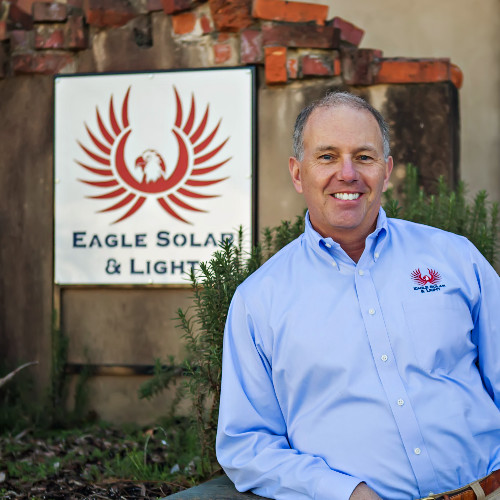
The advantages of solar power (and the disadvantages for Alabama residential customers)
Posted On August 8, 2022
Solar power can be an effective way to cut your utility costs. So why don’t we see more of it in Alabama?
This is a state, after all, with some of the highest utility rates in the Southeast. But according to the Southern Environmental Law Center, there are only about 500 rooftop solar customers – commercial and residential – in Alabama, a fraction of those utilizing solar power in other Southeastern states. Why?
In the latest episode of “What’s Working with Cam Marston,” I posed that question to Sam Yates, CEO of Eagle Solar and Light, the largest solar power installer in Alabama.
 The chief reason, Yates said, is that current state regulations make utilizing solar much less cost-effective for residential customers in Alabama than in other states. He pointed to a 2013 regulation from the state Public Service Commission that allows Alabama’s largest electricity provider, Alabama Power, to charge a fee to people in four rate classes for interconnected alternative energy, including residential solar.
The chief reason, Yates said, is that current state regulations make utilizing solar much less cost-effective for residential customers in Alabama than in other states. He pointed to a 2013 regulation from the state Public Service Commission that allows Alabama’s largest electricity provider, Alabama Power, to charge a fee to people in four rate classes for interconnected alternative energy, including residential solar.
“The bottom line is that this additional fee consumes half of the savings that solar generates,” Yates said, adding that it therefore takes far longer to recoup enough in savings to pay for the cost of installation. “So for a comparative state … where a resident can receive and enjoy a full payback in eight to 10 years, in this state it’s twice that. It’s 16 to 20 years. That’s why we see such a dearth of residential solar.”
Yates started Eagle Solar and Light in 2016 & the business operates in several other Southeastern states. In Alabama, the lion’s share of his customers are commercial and industrial. In this sector, the growth potential for solar is strong here because of the potential savings.
“Because of the dearth of solar penetration in this state, we’re basically market-makers,” Yates said. “Our mission has been to get out, make contact and educate customers.”
Along with state regulations in your area, here are some other things Yates recommends you look into if you or your business are considering solar:
- The benefits of avoiding rising inflation costs
- How long it’ll take for cost savings to return your investment
- Technology improvements and the improved quality of solar panels
- Federal tax credits available for solar
- ESG (Environmental, Social & Governance) benefits
- Locations unsuitable for solar
Even with the regulatory and other obstacles, Yates is excited about the future of the industry in the Southeast.
“Given the ESG wave, the concern or the focus on environmentalism, sustainability and leaving this earth a better place for our children and grandchildren and so forth,” he said, “it’s a great place to be.”